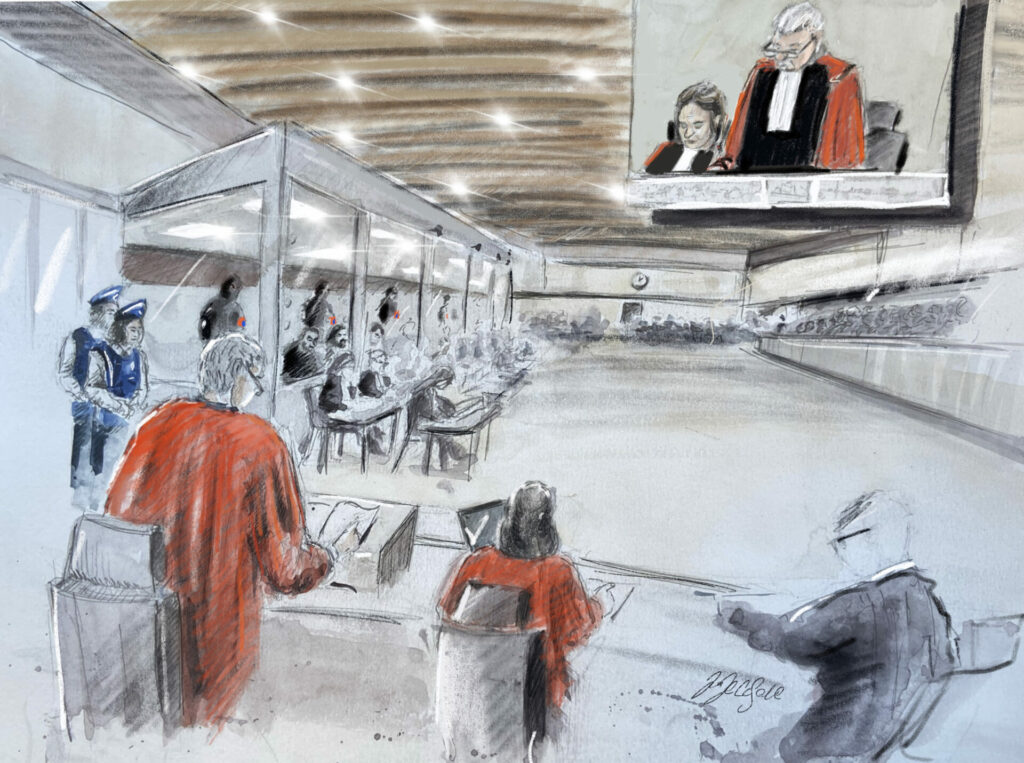One of the accused men in the trial on the 22 March 2016 terror attacks in Brussels, Mohamed Abrini, wanted to cause trouble and hide a knife, according to the risk assessment that the police relied on for the much-discussed strip searches before being transferred to court.
Following the defendants' numerous refusals to appear in court because of "humiliating" strip searches, police now have to justify the need for a nude search – in which the accused have to bend their knees – in a daily risk assessment to make sure the Belgian State respects Article 3 of the European Court of Human Rights (ECHR).
Abrini's risk assessment shows that the police definitely consider the nude searches necessary for him, based on, among other things, a conversation between him and two other accused men when they were transferred from prison to the courtroom on 7 December.
"There, he says in Arabic that he will cause trouble," the risk assessment reads. "Two other accused responded that it was not the right time and that he should wait until the end of the reading of the charge sheet. Then they would respond simultaneously."
Trial suspended again
Abrini apparently also said that he wanted to hide a knife to arm himself with and that he was "starting to boil." Additionally, while leaving the glass box for the accused in court that day, he also allegedly shouted that this is "no way to treat the servants of Allah."
From his words and actions, the police conclude that Abrini is ready to "commit another attack on the physical integrity of persons" and that an attempt to escape cannot be ruled out. The analysis also shows that Abrini does not shy away from confrontation with the security forces. "The strip search is necessary."
Word for word, the risk analysis document was read out in court – by an interpreter because the police document was written in Dutch, but the official language of the trial is French.
The analyses of the other accused normally also had to be read, but the trial was suspended again shortly afterwards because the lawyers for both Abrini and El Haddad Asufi announced that they no longer had a mandate from their clients to represent them; the accused no longer want representation at the trial, in protest against the strip searches.
However, this is a problem for the continuation of the proceedings, as the trial cannot continue if an accused is not present or represented.
Related News
- Brussels attacks trial: 'Daily risk assessments' determine need for strip searches
- Brussels attacks trial: Hearing suspended following new controversy over strip searches
- Brussels attacks trial: Defendants sue Belgian State over conditions of transport to court
Immediately, consultations were held with the lawyers' chief of staff (who was preventively present in the courtroom). As the president of the Assize court, Laurence Massart then decided to appoint the lawyers of Abrini and El Haddad Asufi herself. The lawyers accepted, but not without first delivering another speech in the courtroom against the nude searches.
Meanwhile, Abrini and El Haddad Asufi, as well as most of the other accused, were again absent from court on Thursday morning. Only Bilal El Makhoukhi was present, although he said that he too had to endure "a humiliating strip search" first.
"Nothing has changed. I was searched and had to bend my knees," he said. However, he did confirm that the search is done in two stages: first the outer clothing is removed and only then the undergarments.

